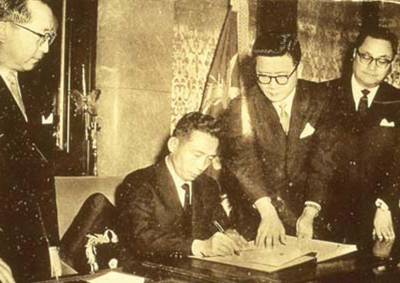- Dokdo in the East Sea
- Dokdo in History
- Dokdo is Korean Territory
Dokdo in the East Sea
Table of Contents Open Contents
- Dokdo is Korean Territory
-
Ⅰ. Roots of Territorial Claims to Dokdo
- 1. Korean Territorial Claims Proven by Japanese Historical Sources
- 2. Korean Territorial Claims Proven by Korean Historical Sources
- 3. The Japanese government’s claim that it established territorial rights over Dokdo in the mid-seventeenth century is a fabrication.
- 4. The Highest Decision-making Office in Japan’s Meiji Government Decides that Dokdo and Ulleung are Part of Korean Territory
- Ⅱ. On the declaration of territorial rights over Dokdo by the Korean government and the illegality of the island’s annexation in 1905 to Shimane Prefecture
- Ⅲ. Korea’s Territorial Rights to Dokdo Seen from Measures Taken by the Allied Powers after World War II
- Ⅳ. Korea’s Territorial Claims on Dokdo after the San Francisco Peace Treaty
- Ⅴ. Korea’s Territorial Rights over Dokdo Seen from International Law
3. The 1965 Korea-Japan Treaty and Dokdo

Korea-Japan Normalization TreatyKorean President Park Chung-Hee signing the Korea-Japan Normalization Treaty on June 22, 1965









